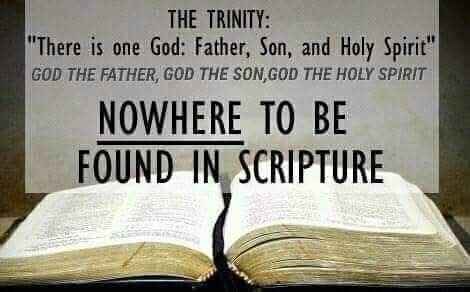Peterlag
Active Member

The words “HOLY SPIRIT” in the Bible...
are primarily used in two very different ways: One way is to refer to God Himself and the other is referring to God’s nature that He gives to people. God is holy and is spirit and therefore “the Holy Spirit” with a capital “H” and a capital “S” is one of the many “names” or designations for God. God gives His holy spirit nature to people as a gift and when HOLY SPIRIT is used that way it should be translated as the “holy spirit” with a lowercase “h” and a lowercase “s.”
There are many descriptions, titles, and names for God in the Bible and I would like to add God’s proper name is “Yahweh” which occurs more than 6,000 times in the Hebrew Old Testament and is generally translated as “LORD.” But God is also referred to as Elohim, Adonai, El Shaddai, the Ancient of Days, the Holy One of Israel, Father, Shield, and by many more designations. Furthermore, God is holy (Leviticus 11:44), which is why He was called “the Holy One” (the Hebrew text uses the singular adjective “holy” to designate “the Holy One." He is also spirit (John 4:24).
It makes perfect sense since God is holy and God is spirit that “Holy” and “Spirit” are sometimes combined and used as one of the many designations for God. Thus, the Hebrew or Greek words for the "HOLY SPIRIT" should be brought into English as the "Holy Spirit”when the subject of a verse is God. None of the dozens of descriptions,titles, or names of God are believed to be a separate, co-equal “Person”in a triune God except for the “HOLY SPIRIT” and there is no solid biblical reason to make the "Holy Spirit” into a separate “Person.”

